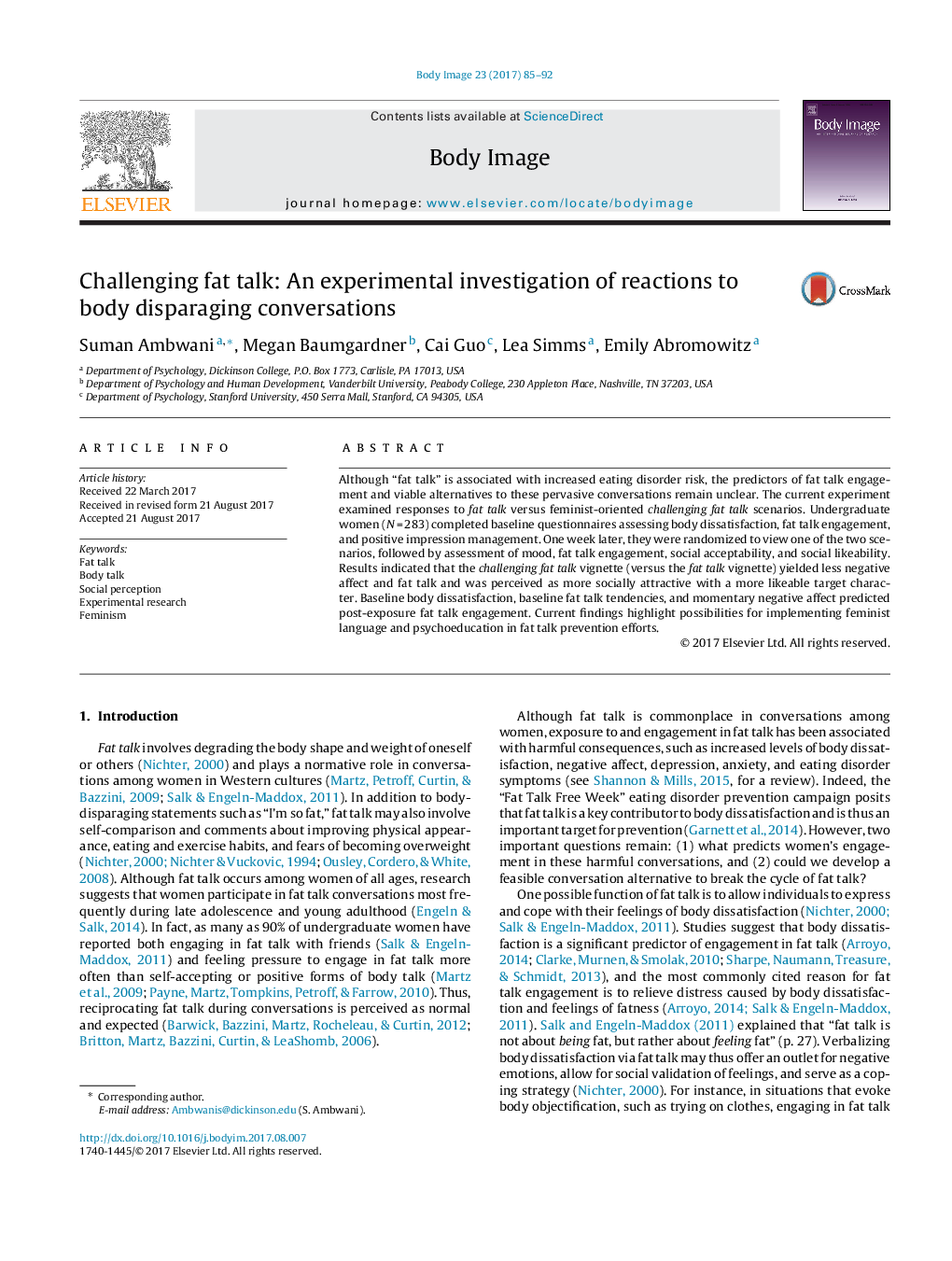| Article ID | Journal | Published Year | Pages | File Type |
|---|---|---|---|---|
| 5038352 | Body Image | 2017 | 8 Pages |
â¢Experiment assessed reactions to fat talk vs. challenging fat talk vignettes.â¢Challenging fat talk vignette was based on feminist principles.â¢Challenging vignette was perceived as more socially attractive and likeable.â¢Challenging vignette resulted in less post-exposure fat talk among respondents.â¢Feminist-inspired language offers a socially acceptable alternative to fat talk.
Although “fat talk” is associated with increased eating disorder risk, the predictors of fat talk engagement and viable alternatives to these pervasive conversations remain unclear. The current experiment examined responses to fat talk versus feminist-oriented challenging fat talk scenarios. Undergraduate women (NÂ =Â 283) completed baseline questionnaires assessing body dissatisfaction, fat talk engagement, and positive impression management. One week later, they were randomized to view one of the two scenarios, followed by assessment of mood, fat talk engagement, social acceptability, and social likeability. Results indicated that the challenging fat talk vignette (versus the fat talk vignette) yielded less negative affect and fat talk and was perceived as more socially attractive with a more likeable target character. Baseline body dissatisfaction, baseline fat talk tendencies, and momentary negative affect predicted post-exposure fat talk engagement. Current findings highlight possibilities for implementing feminist language and psychoeducation in fat talk prevention efforts.
